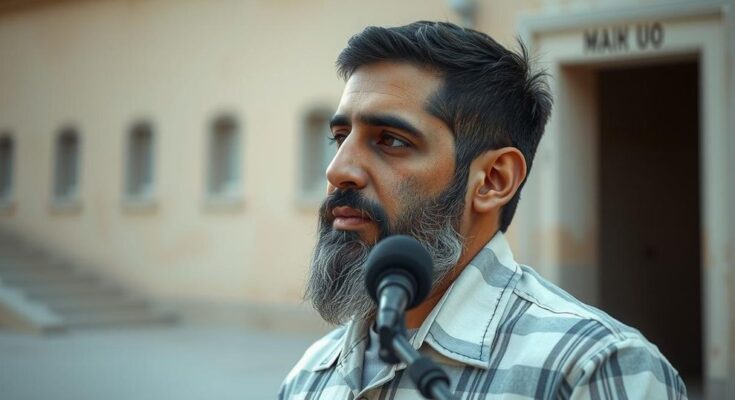Italy has released Mohammad Abedini, an Iranian sought by the U.S. for alleged involvement in a drone attack in Jordan that killed three Americans. His arrest was revoked following a petition by the Italian justice minister due to legal discrepancies between U.S. and Italian laws. Abedini has returned to Iran, while the case has also been linked to negotiations for the release of Italian journalist Cecilia Sala, who was detained in Iran. Italian officials underscored the role of diplomacy in resolving the situation.
On Sunday, Italy concluded its legal proceedings surrounding Mohammad Abedini, an Iranian citizen wanted by the United States for his alleged involvement in a drone attack in Jordan resulting in the deaths of three American servicemen. Following a request from the Italian justice minister, an Italian court revoked his arrest warrant, leading to his prompt return to Iran, as reported by Iranian state media. Abedini had been in custody since December 16, 2022, facing a potential extradition linked to charges of supplying drone technology used in the aforementioned attack.
Italian authorities stated that under the existing extradition treaties between Italy and the United States, an extradition could only occur if the alleged crime is punishable under the laws of both countries. They concluded that the accusation against Abedini did not align with any recognized crime under Italian law. Following his release, the Iranian foreign ministry engaged in discussions with Italian intelligence, emphasizing the diplomatic negotiations surrounding this case. The Italian Prime Minister, Giorgia Meloni, acknowledged the intricate diplomatic dynamics at play, particularly the significance of U.S. interests in securing the return of Italian journalist Cecilia Sala, who had been detained in Iran.
The case of Mohammad Abedini is significant as it highlights the complexities and implications of international diplomatic relations and extradition laws. Abedini’s arrest stemmed from an alleged drone attack in January 2024, which resulted in American casualties. In December 2022, his arrest on a U.S. warrant signified a broader context of U.S.-Iran relations, particularly regarding technology transfer and military engagements. The release of both Abedini and Sala underscores the delicate balance that countries must navigate when dealing with international justice, bilateral treaties, and national interest negotiations.
In conclusion, the release of Mohammad Abedini by Italy is a pivotal event that illustrates the intricate interplay of legal frameworks, diplomatic negotiations, and international relations. While the U.S. sought accountability for a drone attack resulting in American fatalities, the Italian justice system found no grounds for extradition based on existing treaties. This case not only affects U.S.-Iran relations but also highlights Italy’s role in these negotiations, particularly in conjunction with the release of journalist Cecilia Sala, further emphasizing the necessity of diplomatic engagement in resolving complex global issues.
Original Source: www.theguardian.com




